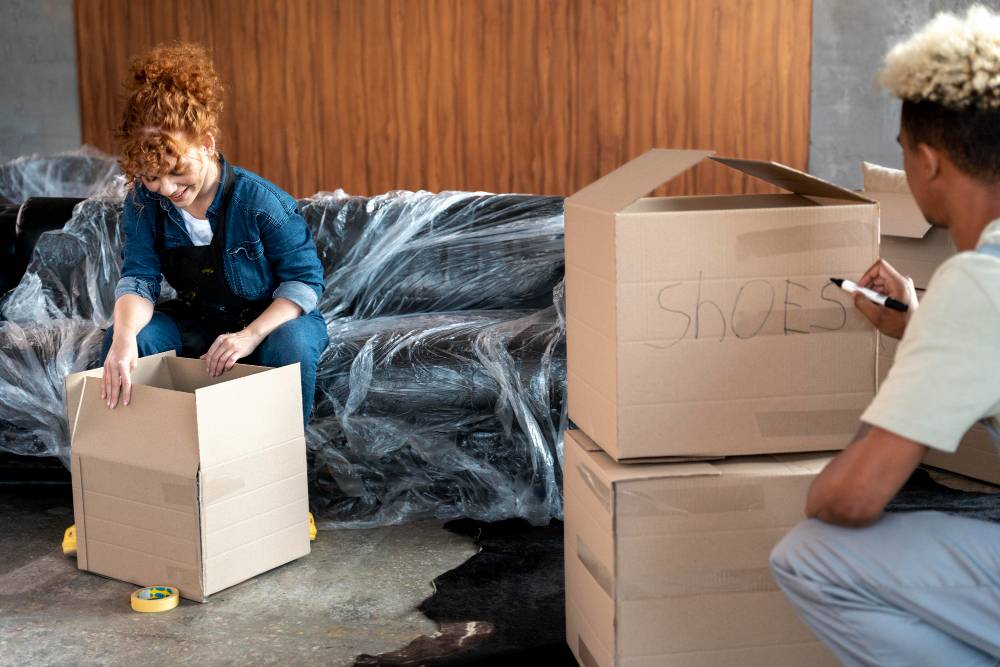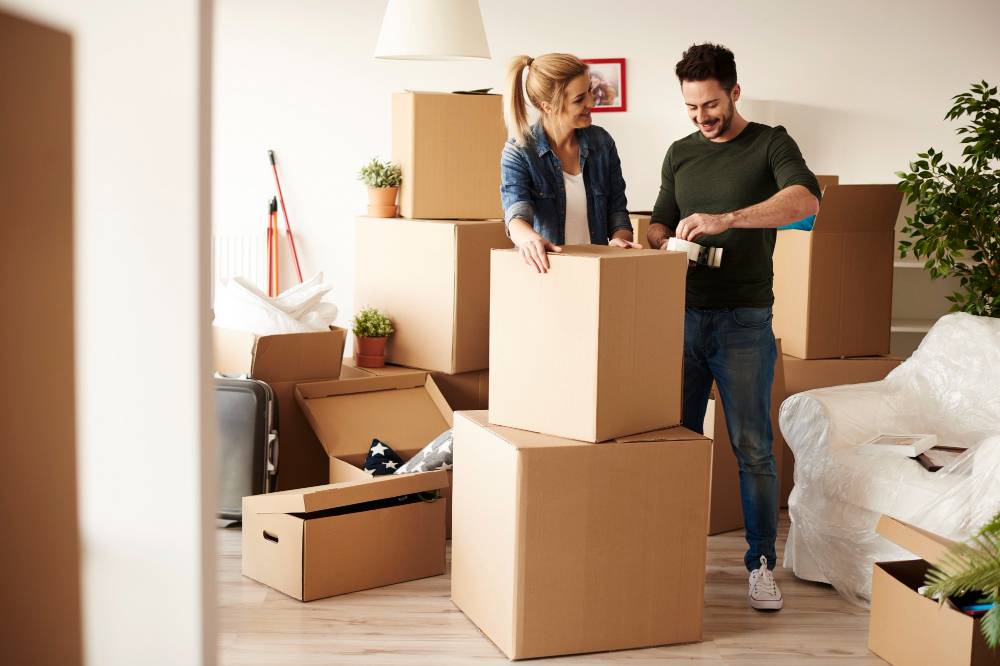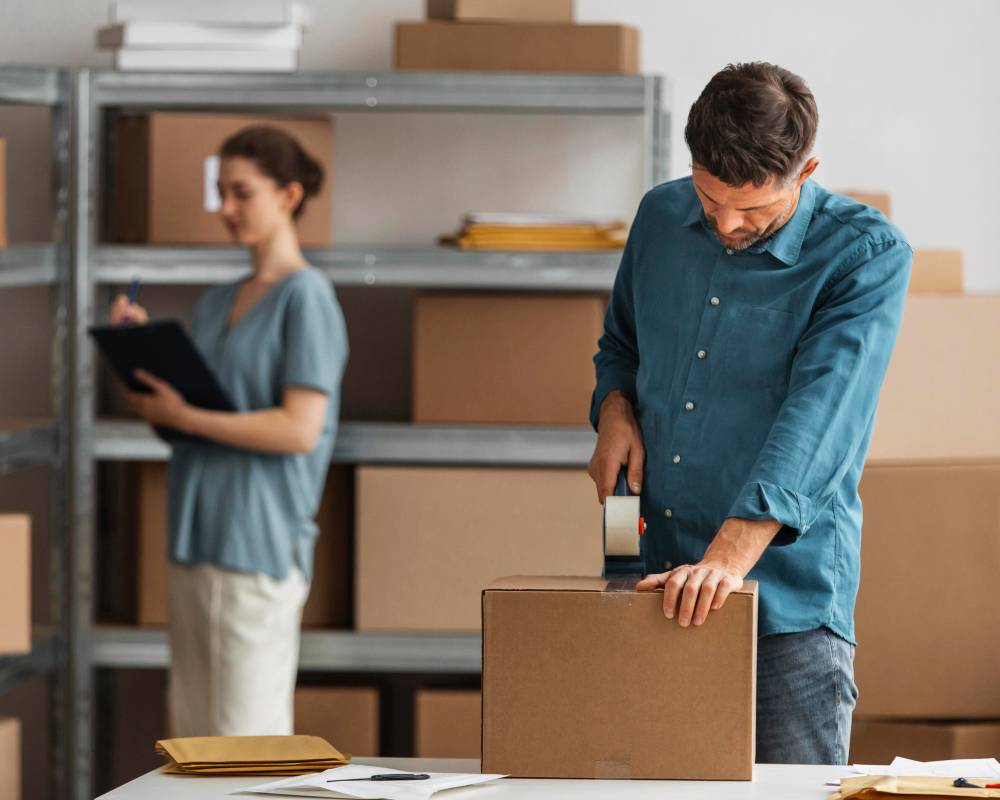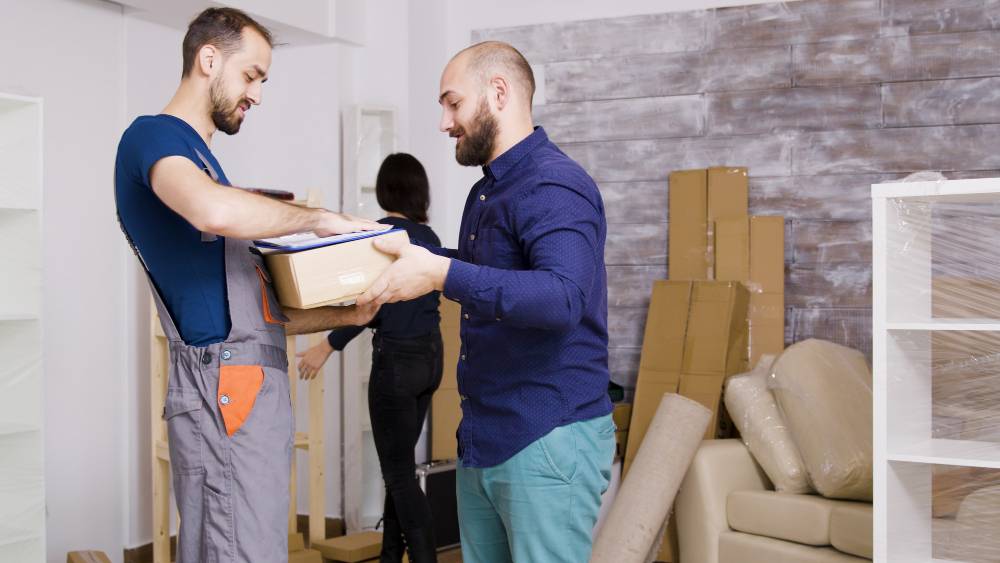Moving can be one of the most stressful life events, but it doesn’t have to be! Packing efficiently can make the process much smoother and less overwhelming. Whether you’re moving across town or to a different state, these expert tips will help you pack like a pro and ensure a stress-free transition.
One of the biggest challenges people face during a move is figuring out where to start. The key is having a strategy in place before you begin. Instead of randomly tossing things into boxes, take a step-by-step approach that keeps everything organized and manageable. The better your packing strategy, the easier your unpacking process will be.
Another crucial factor is using the right packing techniques to protect your belongings. Many items, especially fragile or valuable ones, require special handling. With proper preparation and the right supplies, you can ensure that everything arrives at your new home intact and ready to use.
Start with a Packing Plan
Before you start stuffing boxes, take a step back and plan. A well-organized moving checklist can help you stay on track and ensure you don’t forget anything. Create a timeline and break down the packing process into manageable steps.
A good place to start is by setting deadlines for each phase of packing. For example, you might dedicate the first week to decluttering and organizing, the second week to packing non-essential items, and the final days to boxing up everyday essentials. Having a clear timeline prevents last-minute stress and chaos.
Another important step in your plan is determining whether you need professional help. If you have many fragile or heavy items, hiring professional movers might be worth the investment. Otherwise, gathering a team of friends or family members to assist can speed up the process and make it more enjoyable.
Gather the Right Packing Supplies
Invest in high-quality packing materials, including:
- Sturdy moving boxes
- Packing tape
- Bubble wrap and packing paper
- Labels and markers
- Stretch wrap for furniture
- Ziplock bags for small items
Choosing the right packing materials can make a huge difference in the safety of your belongings. Cheap or flimsy boxes can easily break, causing damage to your items during transport. Instead, opt for sturdy, reinforced boxes that can handle the weight of your possessions.
When packing fragile items, bubble wrap, packing paper, or foam peanuts can help prevent breakage. Also, don’t forget to use high-quality packing tape to secure your boxes properly. Weak tape may not hold up, leading to boxes opening unexpectedly.
Finally, keep markers and labels handy for proper organization. Labeling your boxes clearly can save you hours of frustration when unpacking. Consider using different colors or numbers for each room to make it even easier to sort items at your new home.
Declutter Before Packing
Packing everything you own without sorting can lead to unnecessary stress and clutter. Before you start, categorize your items into four groups:
- Keep: Items you use regularly
- Donate: Things that are in good condition but no longer needed
- Sell: Valuable items you no longer need
- Discard: Broken or unusable items
Decluttering before packing has multiple benefits. It reduces the number of items you need to move, which can lower transportation costs. It also makes unpacking easier since you’ll only be dealing with items you truly need and want in your new home.
One of the best ways to declutter is by tackling one room at a time. Start with storage spaces like attics, basements, and garages, as these areas often accumulate unused items over time. Set aside things you no longer need and consider donating them to charity or selling them online for extra cash.
Once you’ve sorted through everything, discard broken or unusable items responsibly. Many local waste management services offer bulk item pickup, or you can take them to a recycling center. By doing this step before you pack, you ensure a more organized and efficient moving process.
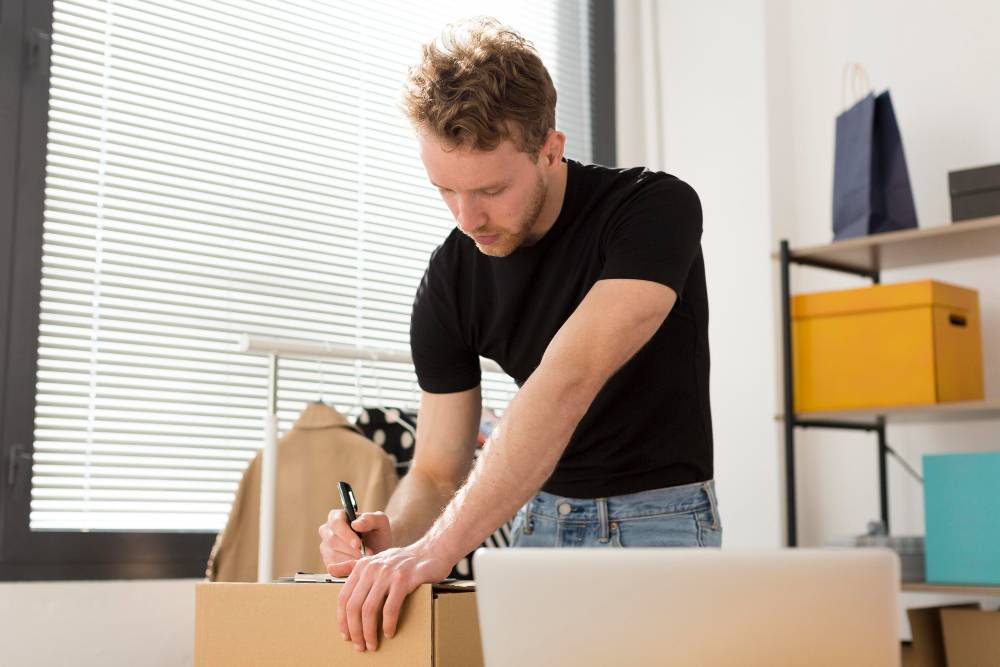
Unpacking Efficiently
Once you’ve arrived at your new home, the unpacking process begins. Start by setting up essential areas like the kitchen, bedroom, and bathroom first. This way, you can settle in quickly without feeling overwhelmed by boxes everywhere.
A great strategy is to unpack one room at a time. Avoid opening multiple boxes at once, as this can create unnecessary clutter. Use your labeling system to identify priority boxes and work through them methodically.
Also, don’t rush to unpack everything in one day. Take breaks and focus on the organization as you go. The more structured your unpacking process, the easier it will be to transition into your new space smoothly.
Final Moving Day Tips
On a moving day, double-check that all your boxes are sealed and labeled correctly. Keep important items, such as medications, chargers, and essential paperwork, in an easy-to-access bag. Having a moving day survival kit can make a big difference in reducing stress.
Make sure to do a final walkthrough of your old home to ensure nothing is left behind. Check cabinets, closets, and storage areas for any forgotten items.
If you’ve hired movers, give them clear instructions on handling fragile or valuable items. Once everything is loaded onto the truck, confirm the delivery details and estimated arrival time at your new home.
Conclusion
Moving doesn’t have to be overwhelming when you have the right strategy in place. By planning ahead, organizing your belongings, and following expert packing techniques, you can make your move smoother and stress-free. Taking the time to declutter, label boxes properly, and protect fragile items will save you from unnecessary headaches during unpacking.
Another key to a successful move is staying flexible. Unexpected challenges may arise, but having a well-thought-out packing plan allows you to adjust and manage any last-minute surprises with ease. Remember, moving is a transition into a new chapter, and with the right approach, you can make it an exciting and positive experience.
Lastly, don’t forget to take care of yourself during the process. Moving can be physically and emotionally demanding, so be sure to take breaks, stay hydrated, and ask for help when needed. With these expert packing tips, you’ll be well on your way to settling into your new home effortlessly. Happy moving!
